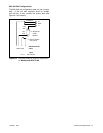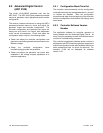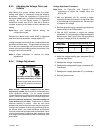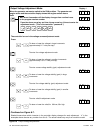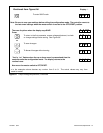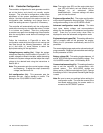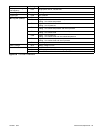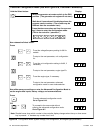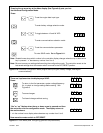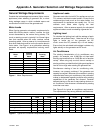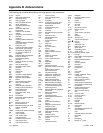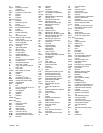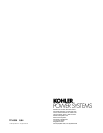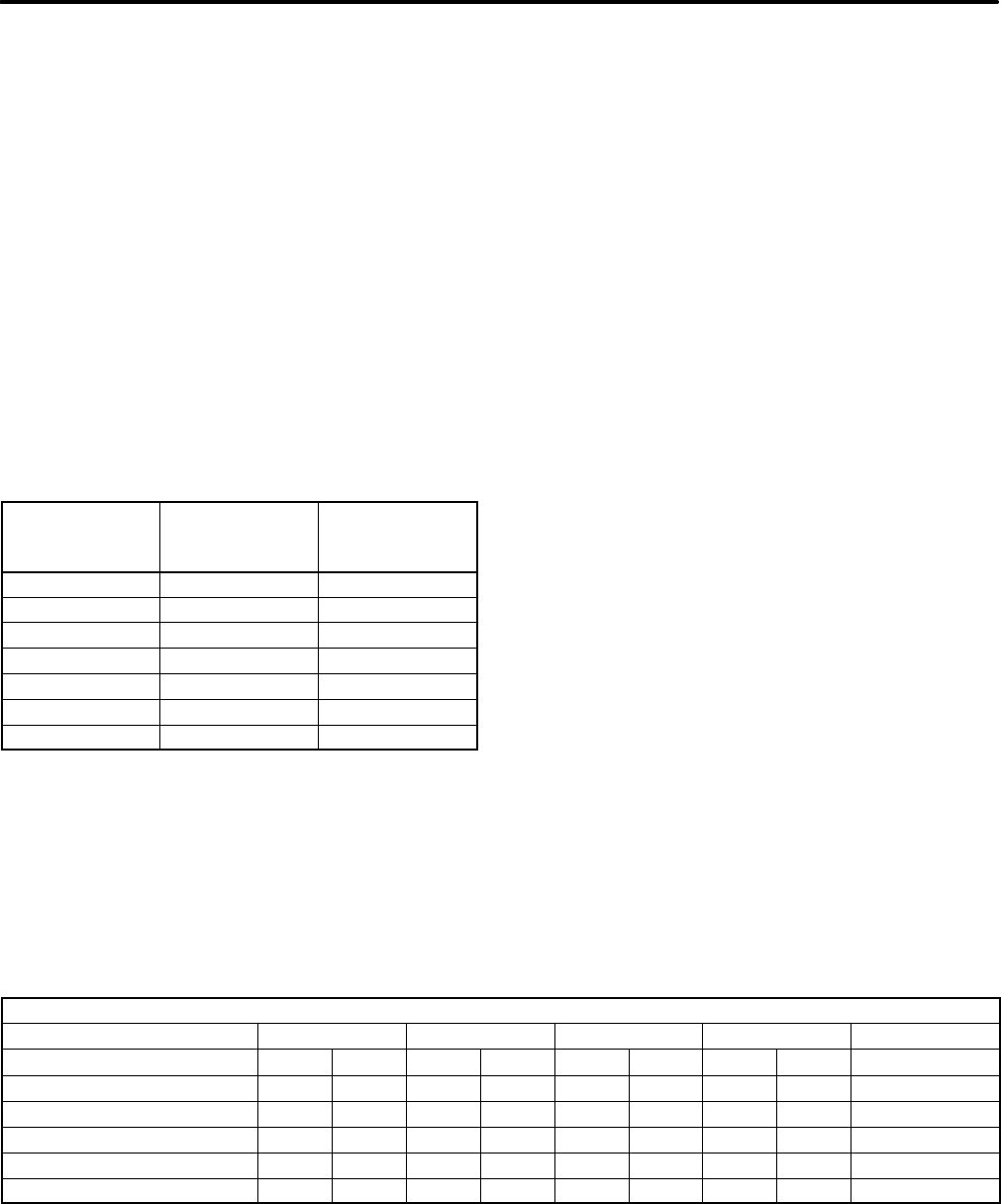
TP-6335 9/04 Appendix A-1
Appendix A Generator Selection and Wattage Requirements
General Wattage Requirements
Consider the total wattage requirements (lights, motors,
appliances) when selecting a generator set, or when
sizing wattage usage in which available space and
construction limit the size of the generator set.
Motor Loads
When figuring generator set capacity requirements for
loads that include electric motors, consider the high
current demanded by the motors during startup. The
inrush or starting current is typically 2 to 3 times higher
than that required when the motor reaches normal
operating speed. Allow a reserve for inrush demands
plus other loads that could be on the line as the electric
motor starts. Use Figure 1 as a guide when selecting
generator set capacity requirements involving motor
loads.
Motor
HP
Starting
(Inrush)
Watts
Running
Watts
1/4 750 330
1/3 1000 400
1/2 1500 600
3/4 2000 750
1 3300 1100
2 4000 2000
3 5000 3000
Figure 1 Motor Requirements
Appliance Loads
Generator sets often furnish AC for appliances such as
TVs, stereos, and electric water heaters. Except for the
resistance-type loads such as the water heater, the
requirements for appliances are usually low. Do not
overlook such loads when figuring the total
requirements. Allow a reserve capacity for anticipated
appliance loads to avoid overloading a generator set.
Lighting Load
To calculate the lighting load, add the wattage of each
generator set-operated lamp. Note that not all of the
lights or lamps are on the generator set AC
circuit—some are DC powered by a 12-volt battery.
Ensure that the calculated total wattage includes only
lights actually on the generator set AC circuit.
Air Conditioners
The starting characteristics of air conditioners vary
greatly—for example, one 12,000 Btu unit has lower
starting requirements than a 10,000 Btu unit of another
variety. When using only one unit, there is usually no
starting problem provided thatthe lighting andappliance
load is not too high when starting the generator set.
Simultaneous starting of two air conditioning units,
however, can present problems if the generator set
capacity is marginal. Because of thevariation instarting
characteristics among air conditioners, this publication
makes no statements regarding multiple-motor starting
capabilities of the generator set covered. Consider
delayed starting or the use of easy-starting devices on
air conditioner units whenever simultaneously starting
more than one motor.
See Figure 2 for typical air conditioner requirements.
The requirements vary among different manufacturers.
Air Conditioner Size (Btu)
7,000 9,000 12,000 16,000 24,000
Voltage 115 230 115 230 115 230 115 230 230
Full load amps 9.3 4.8 9.9 5.0 11.8 6.3 16.3 8.0 11.6
Rated load amps 7.7 4.0 7.0 3.5 8.9 4.8 13.0 6.2 10.2
Locked rotor amps 34.0 20.0 40.0 20.0 50.0 31.0 75.0 36.0 56.0
Starting (inrush) watts 3910 4600 4600 4600 5750 7130 8630 8280 12,900
Running watts 886 920 805 805 1020 1100 1500 1430 2350
Figure 2 Ty pical Air Conditioner Requirements (60 Hz)



